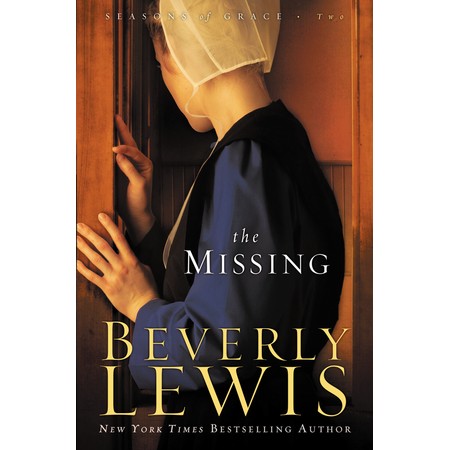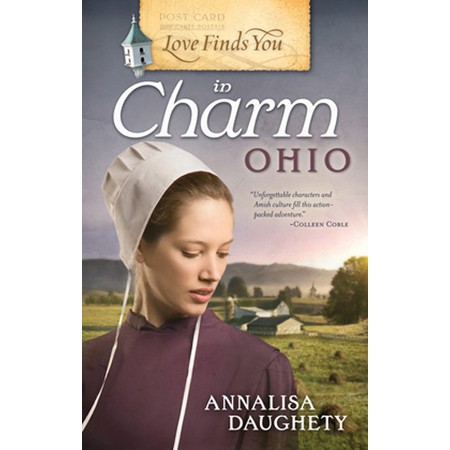 Fuck Vampires and Zombies: "Put a Bonnet On It!"
Fuck Vampires and Zombies: "Put a Bonnet On It!"Sitting down to write a story is an act of faith comparable to throwing yourself in front of a train to see what Heaven is like. Any writers who cheat and speculate from a comfortable metaphysical bunker are difficult to trust.
Don't get me wrong: some of the most voracious and intelligent readers I've ever met have been devout fundamentalists. They merely read classics; work long verified as containing wisdom, truth, and beauty that transcends contemporary fads. Or they obsess over the slide-whistle insanities of round-the-bend lunatics like Anne Rice, C.S. Lewis, and Orson Scott Card: writers who find validation for their own troubling preoccupations in Christianity (in addition to finding a ready-made market for likeminded fetishists).
More often than not, however, Christian fiction is a watered-down knock-off of current best-selling formulas. There are Christian vampire novels. There are Christian techno-thrillers. There are Christian bodice-rippers. The "Left Behind" series is essentially a Christian "Harry Potter," except "You-Know-Who" is literally the Antichrist.
There's even Christian zombie fiction.

But none of this is to be trusted. All of these genres are consolation prizes for fundamentalists who are starved to participate in the fun pop-culture sensations that they are denied by their church. What does a fundamentalist know about technology or sexual exploration?
But to write fundamentalists off as not "creative" is a mistake. They are merely limited in their opportunities for expression; not depth. Some of the world's most successful creative projects have been undertaken within strict limitations of code and creed.
And now, knock-offs aside, Christian fiction has finally found an original genre that actually works.
A genre that makes sense.
A format within which I would trust a fundamentalist to write a great novel.
The genre is called "Amish Fiction," and (Hosanna!) it is as big in some circles as an honest barn.
***
From an AP article about the Christian fiction market:
"The undisputed industry leader is so-called Amish fiction âÂÂ" typically, romances and family sagas set in contemporary Amish communities. They're a surprise hit with evangelical women attracted by a simpler time, curiosity about cloistered communities and admiration for the strong, traditional faith of the Amish.
"The success of the genre has spawned not just new Amish fiction authors but spinoff series about other cloistered communities. If you want to sell it, as one literary agent put it, put a bonnet on it."
Amish fiction is exactly what I would tell a devout fundamentalist to write if they asked me for advice (maybe we are stuck in an elevator for days).
Think about it: a closed and disciplined community of wholesome and sexless iconoclasts appeals to religious zealots so much that they have staked their entire existence on it. Why not explore the subject in its most pure historical context? Why not figure out all the possibilities for human love and redemption that exist within a world without freedom or rights?
Write what you know!
***
Amish fiction was invented by an author named Beverly Lewis from Colorado, who wrote a book called "The Shunning" in 1997 which has sold over a million copies and has kick-started the genre.
She doesn't just write about Amish women. She writes about SASSY Amish women.
From the same AP article:
"For every lineup of Amish women at a gathering of any kind, you'll always see one of them that has her hand kind of on her hip," said Lewis, who grew up a Pentecostal preacher's daughter in Pennsylvania Amish country. "That's my character. She's the one that's pushing boundaries."
Do the Amish read Amish fiction? How accurate is it? What are the main preoccupations and conflicts? Are the characters as simple as their way of life? Are there Amish fiction stock characters? What "churns" beneath the surface of Amish life?
***
Here are the plots to some "Coming Soon" Amish fiction titles:
"THE MISSING," by Beverly Lewis

"Twenty-one-year-old Grace Byler longs to find her missing mother and to uncover the secret that drove her to leave them three weeks before. Grace suspects the reason has to do with her father and his reserved, uncommunicative ways. This conviction led Grace to break off her betrothal to her quiet, staid beau, and she is now resigned to remain single. But when the young Amishman she thought was courting her best friend takes a sudden interest in her, Grace is befuddled and wonders if he can be trusted.
"Englisher" Heather Lang has come to Amish country to relive fond memories of her mother and to contemplate a grave medical prognosis of her own. While in Bird-in-Hand, Heather meets Grace Byler and the two young women strike up a fast friendship, amazed by how well they click."
"LOVE FINDS YOU IN CHARM, OHIO," by Birdie Etchson

"Raised by Amish grandparents, Carly Berndt has always wondered about the parents she never met. During her rumschpringa, she searches for clues to her identity. Along the way she finds herself drawn to an Englisher whose lifestyle intrigues her and to a gentle Amish man. In whose world does she belong? Will God make the answer clear?"
"A COUSIN'S PROMISE," by Wanda E. Brunstetter

"When a horrific accident cripples Wayne Lambright, he finds it difficult enough to take care of himself, much less Loraine Miller, his future bride. Will he sacrifice his happiness to give her a better life? Having already been jilted once, Loraine is terrified of yet another rejection. But does she love Wayne enough to marry him, for better or worse? When her old boyfriend Jake Beechy returns from exploring the English world, he hopes Loraine will give him another chance. How will God work to give Loraine the desires of her heart?"
"THE HANDMAID'S TALE," by Margaret Atwood

"The Handmaid's Tale is set in the Republic of Gilead, a country formed within the borders of what was formerly the United States of America by a racist, chauvinist, nativist, theocratic-organized military coup motivated by an ideologically-driven response to the pervasive ecological degradation of the land, widespread infertility, and attendant social dislocations. Beginning with a staged terrorist attack killing the President and Congress, the coup leaders launched a revolution which overthrew the United States government and abolished the US Constitution. The new theocratic military dictatorship, styled "The Republic of Gilead", moved quickly to consolidate its power and reorganize society along a new militarized, hierarchical, compulsorily-Christian regime of Old Testament-inspired social and religious orthodoxy among its newly-created social classes."
***
In these books, God is an immanent main character that is having a good time fucking with people's lives. This is the pure, unironic expression of postmodernism: the author has injected themselves into the worlds of their characters to shepherd them along and demand their love.
The men in these novels are all staid and decent. They work hard and they ask for little. The women are all plain and fierce. They pray. They hope for happiness.
It's a strange genre, and not my cup of tea, but you must admit: it is truly CHRISTIAN. These perverse narratives could not be written by a heathen nor Hindu. They require the cold, white hand of a blue-blooded believer to see the light of day.
So if you are staring in the mirror this morning, popping some hangover aspirin, and asking God: "How the fuck am I going to get paid for writing in this lifetime? What the hell do I have to do to get some money from my misguided, rotten discipline?"
Fuck vampires and zombies: "Put a bonnet on it!"
Posted by miracle on Thu, 16 Jul 2009 08:05:04 -0400 -- permanent link




